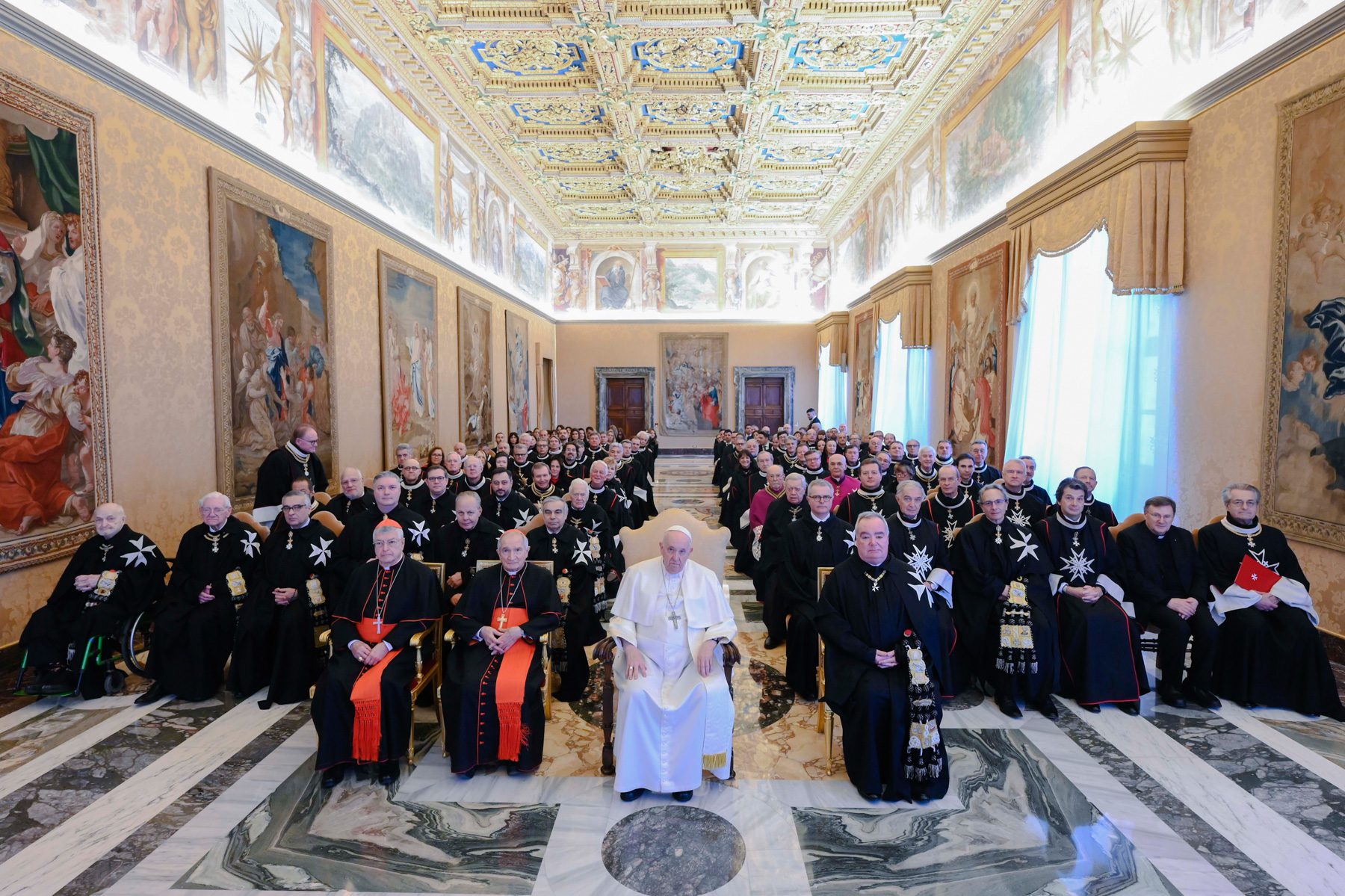
The close of its ‘Extraordinary General Chapter’ and meeting with Pope Francis on January 30th proved to be a healing moment for the Order of Malta, the storied order of monastic knights recently racked by internal conflict and tensions with the Vatican.
With the members of the 900-year-old order gridlocked in a tangle of visionary and personal disputes impeding the reform of its constitution, which began in 2018, the pope stepped into the fray in 2022. Following listening sessions with the knights, he personally made the final decision on the order’s revised constitution and replaced four members of its internal governing board, charging the board with preparing a general chapter to ratify the constitution and elect new leaders.
When a religious order of monks or nuns has serious internal problems, it is not unusual for the Vatican to suspend normal governance and carry out reforms before regular governance resumes. But the Order of Malta is the only religious order in the Catholic Church that also holds the status of a sovereign state in international law. The knights lost their last foothold of territory, the island of Malta, to Napoleon Bonaparte in the 18th century but did not lose their international institutional recognition. As an institution, they issue passports and have diplomatic relations with other countries, as well as permanent observer status at the United Nations. This unique position facilitates their international humanitarian missions.
But figuring out how to manage the order’s relationship with the Vatican as part of the Catholic Church alongside its status as a sovereign entity under international law has never been easy. As the canon lawyers at the Catholic news site The Pillar explained, there is an equally strong case for and against the legitimacy of the Vatican’s latest intervention.
In the confusion, both observers and members of the order feared the order’s breakdown. Fortunately, by the knights’ own testimony, the crisis led to genuine renewal.
The Pillar reports that several knights told the publication a “truly fraternal atmosphere,” pervaded the chapter, along with a new sense of purpose.
“It was quite affecting at times,” one of the 111 delegates gathered in Rome for the chapter told The Pillar. “There was a real sense that we are a religious order, gathered for a religious purpose, and not a political assembly or corporate board meeting.”
Another knight also attested to the “striking” change in relations among the knights after years of infighting.
“There was none of that—no tension in the hall, no mutterings, or groups pulling each other aside to complain about one another. We acted like an order, a Christian order,” he said.
The extraordinary chapter elected all four of Francis’ appointees for six-year terms on the governing board, another confirmation of the ultimate efficacy of the pope’s intervention.
The head of the order, the grandmaster, will be elected later but several knights also said it is expected that Fra’ John Dunlap, whom Francis had appointed as interim head, will be elected to lead the knights. Pope Francis’ candidates had wide support, according to The Pillar, even among those who had initially opposed their appointment by the pope.
“We cannot forget the work that was done for the order in the last years, and the friends who served the order with great dedication,” one German knight told The Pillar. “The new government has the confidence of everyone and it is most important that they have unanimous support from everyone.”
In his address to the knights, Francis congratulated them for “the reconstruction, in accordance with the original inspiration, of community life in full observance of the solemn vow of poverty,” as well as strengthening the formation of new members.
The order, which boasts some 13,000 members, has three ranks of knights. The top rank, the first-degree monastic knights who take perpetual vows of poverty, chastity, and obedience, have historically been the heart and soul of the chivalric order. But they currently number less than 50, not even enough to fill all the leadership positions in their priories as required by the constitution.
Part of the reform was removing the nobility requirement to enter the order’s first rank, a move that will allow for greater vocational recruitment.
Pope Francis, too, expressed his hope for numerous new members in all of the order’s ranks.
